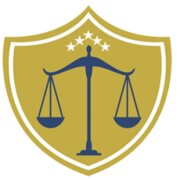Best ADR Mediation & Arbitration Lawyers in Ajax
Share your needs with us, get contacted by law firms.
Free. Takes 2 min.
List of the best lawyers in Ajax, Canada
About ADR Mediation & Arbitration Law in Ajax, Canada
Alternative Dispute Resolution (ADR) refers to processes like mediation and arbitration used to resolve conflicts outside of the court system. In Ajax, Ontario, ADR is an increasingly popular approach for individuals and organizations seeking to resolve disputes efficiently, privately, and potentially at a lower cost than going to court. Mediation involves a neutral third party helping both sides reach a mutual agreement, while arbitration involves a neutral arbitrator making a binding decision after considering the evidence. Both are guided by provincial and federal laws, with Ontario having well-established frameworks for ADR processes.
Why You May Need a Lawyer
While ADR is designed to be less formal than court, legal advice can be crucial at several stages:
- Contract Disputes: When disputes arise from contracts, such as employment, commercial, or construction agreements.
- Family Law: Mediation is often used in separation, divorce, or custody matters, and a lawyer can help protect your interests.
- Business & Commercial Issues: For partnership, franchise, or consumer disagreements.
- Workplace Conflicts: Issues like wrongful dismissal or discrimination may be resolved through mediation.
- Understanding Rights and Options: A lawyer ensures you understand the process, your rights, and the consequences of any decisions or agreements made.
- Document Review: Lawyers can review settlement agreements to ensure they are fair and lawful.
- Enforcing ADR Outcomes: If the other party does not follow through, legal help may be needed to turn a mediated or arbitrated resolution into a court order.
Local Laws Overview
In Ajax, ADR processes operate under Ontario's legislative framework and, in some cases, federal law. The Arbitration Act, 1991 sets out how arbitrations are conducted in Ontario. Mediation is less regulated but is frequently integrated into court processes, especially in family law under the Family Law Rules. Contracts often have ADR clauses requiring parties to try mediation or arbitration before court proceedings.
Key aspects include:
- Voluntary Nature: Participation in mediation is generally voluntary, except where mandated by contract or court.
- Confidentiality: ADR processes are private, and what is said typically cannot be used later in court.
- Enforcement: Arbitration decisions (awards) can generally be enforced by the courts if a party fails to comply.
- Neutrality and Impartiality: Mediators and arbitrators must be unbiased and fair to all sides.
Frequently Asked Questions
What is the difference between mediation and arbitration?
Mediation involves a neutral person who helps both sides negotiate a voluntary settlement. Arbitration is more like a private court trial, where an arbitrator makes a final, binding decision.
Is ADR mandatory in Ajax?
ADR is not generally mandatory, but some courts require parties to try mediation before proceeding to trial, especially in family law. Many contracts also require mediation or arbitration before court action.
Can I use ADR for any type of dispute?
Most civil, commercial, and family disputes can be resolved through ADR, but certain issues (such as criminal cases or some aspects of public law) may not be appropriate for mediation or arbitration.
Do I need a lawyer to participate in ADR?
While you are not required to have a lawyer, legal advice can help you understand your rights, prepare for sessions, and review any agreement before signing.
How are mediators and arbitrators chosen?
Parties usually agree on a mediator or arbitrator. They can select from a roster or use recommendations from professional organizations or legal counsel.
Are ADR decisions legally binding?
Mediated agreements are binding if both sides sign a settlement contract. Arbitration decisions are binding and can be enforced by courts unless the agreement is set aside for legal reasons.
What if the other side does not comply with the ADR agreement?
If a party fails to comply with a mediation settlement or arbitration award, you can apply to the court to enforce the agreement or award.
Is ADR confidential?
Yes, ADR sessions are typically confidential. The details cannot be disclosed or used in court, with some exceptions where law requires disclosure (e.g., threats of harm).
How much does ADR cost?
Costs vary depending on the mediator/arbitrator’s fees, length and complexity of the case, and whether lawyers are involved. ADR is usually less expensive than full court litigation.
How long does ADR take?
Most ADR processes are much quicker than court action, often requiring just a few sessions. Arbitration can take longer if the dispute is complex.
Additional Resources
If you need more information or referral services, consider these organizations:
- Ontario Ministry of the Attorney General: Provides resources and lists of accredited mediators and arbitrators.
- ADR Institute of Ontario: Offers referrals and standards of practice for licensed professionals.
- Durham Community Mediation: Not-for-profit services for community and neighbor disputes.
- Family Law Information Centres (FLIC): Located in local courthouses, providing information and referrals for family mediation.
- Legal Aid Ontario: For those who meet financial guidelines, legal aid may help cover mediation in family matters.
- Ajax Public Library: May have books and resources on navigating the ADR process.
Next Steps
If you believe ADR mediation or arbitration may be useful for your situation in Ajax:
- Assess Your Situation: Consider whether your dispute is suitable for mediation/arbitration and if there are any contract clauses requiring it.
- Consult a Lawyer: Reach out to a local lawyer specializing in ADR, who can advise on strategy and represent your interests.
- Contact Local ADR Professionals or Services: Obtain referrals and select an accredited mediator or arbitrator.
- Prepare for the Process: Gather documents and information relevant to the dispute.
- Attend the ADR Session: Participate in good faith, with or without legal representation, and work towards a resolution.
- Finalize Agreements: Ensure any settlement is put in writing, and reviewed by your lawyer before signing.
- Enforcement: If necessary, take steps to enforce an arbitration award or mediated agreement through the courts.
Lawzana helps you find the best lawyers and law firms in Ajax through a curated and pre-screened list of qualified legal professionals. Our platform offers rankings and detailed profiles of attorneys and law firms, allowing you to compare based on practice areas, including ADR Mediation & Arbitration , experience, and client feedback.
Each profile includes a description of the firm's areas of practice, client reviews, team members and partners, year of establishment, spoken languages, office locations, contact information, social media presence, and any published articles or resources. Most firms on our platform speak English and are experienced in both local and international legal matters.
Get a quote from top-rated law firms in Ajax, Canada — quickly, securely, and without unnecessary hassle.
Disclaimer:
The information provided on this page is for general informational purposes only and does not constitute legal advice. While we strive to ensure the accuracy and relevance of the content, legal information may change over time, and interpretations of the law can vary. You should always consult with a qualified legal professional for advice specific to your situation.
We disclaim all liability for actions taken or not taken based on the content of this page. If you believe any information is incorrect or outdated, please contact us, and we will review and update it where appropriate.









